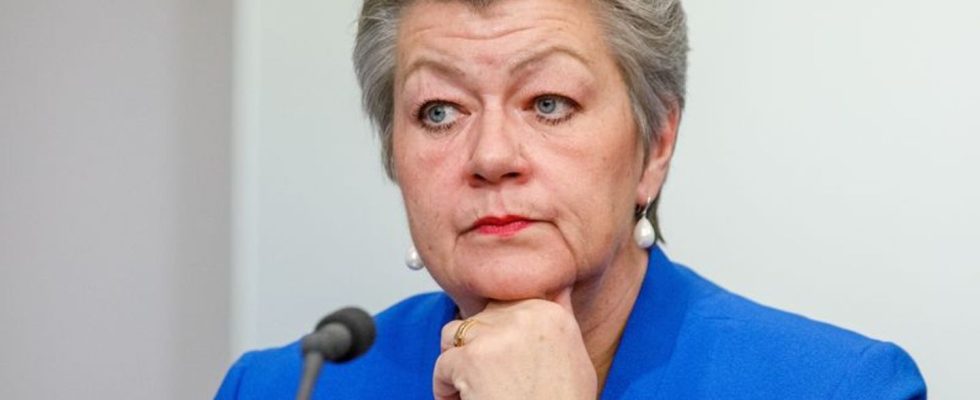Europol
Europol identifies 821 criminal networks in the EU
EU Home Affairs Commissioner Ylva Johansson at Europol’s hybrid press conference. photo
© Hatim Kaghat/Belga/dpa
Italian mafia, Albanian family clans, Moroccan-Dutch gangs: organized crime is active everywhere. Now Europol is turning the spotlight on the underworld.
According to a report by: 821 serious criminal networks Europol is active in the EU and threatens citizens and the rule of law. These gangs, with more than 25,000 members, are highly professional and ruthless, according to the organized crime report presented in The Hague and Brussels.
According to the analysis, the main business is drug trafficking. Every second network is involved, and it mainly involves cocaine, but also synthetic drugs and cannabis. Other crimes include fraud, burglary and theft, human trafficking and migrant smuggling.
EU Interior Commissioner Ylva Johansson said in Brussels: “Organized crime is one of the biggest current threats to the security of citizens, our children and young people and democracy through corruption and extreme violence.”
Highly professional organizations
For the first time, Europol identified these networks and analyzed their functioning and organizational structure based on data from all EU Member States as well as some other partner countries. “We know who they are, how they are organized, how they make money, who they work with,” said Europol chief Catherine De Bolle. The analysis is an important tool for investigators in the fight against organized crime.
They are highly professional and internationally operating organizations. They are flexible, controlling and destructive, the report continues. “They do not operate in an isolated criminal underworld, but have a direct impact on the lives of EU citizens.”
The report cites the powerful ‘Ndrangheta families in Italy as an example. Profits from drug and arms trafficking would be invested across Europe in real estate, supermarkets and hotels. The Mocro Mafia is well known in the Netherlands, a dangerous drug gang with several members from Morocco. More than 100 of the gangs are active in Belgium alone, including Albanian family clans.
The invisible should become visible – for the investigators
According to Europol, the greatest threat lies in the infiltration of the legal business world – the gangs use this to facilitate and conceal their crimes and also launder profits. 86 percent of the networks use legal business structures; a large majority work with corruption and violence.
This analysis and database should help to target organized crime more specifically, said Europol boss De Bolle. The invisible is now visible – at least for the investigators. However, this report is not a telephone directory of organized crime. Names, contacts and structures are not mentioned. The confidential information would be transmitted to the investigators in the affected countries, said De Bolle. “The criminals can no longer hide.”

